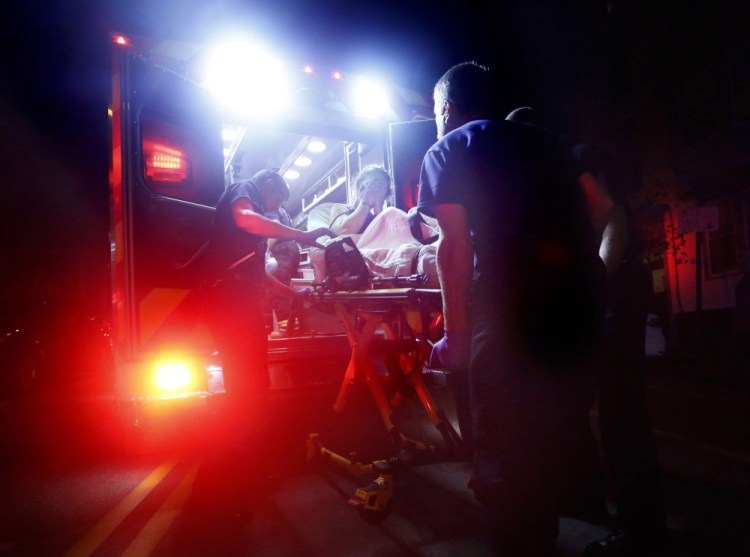As an opioid addiction epidemic continues to ravage lives across Maine, it came as a rare piece of good news last month when L.D. 1547, a bill making the overdose antidote naloxone available over the pharmacy counter, survived a veto by Gov. LePage. But the cost of naloxone is soaring, and while there are short-term steps the state can take to hold down the cost of this lifesaving drug, the inexcusable price spike – as much as 17-fold for some versions – warrants federal intervention.
Legislators’ support this session for over-the-counter naloxone sales is the latest step taken to counter the surge in deadly overdoses in Maine. Laws were already in place allowing police, firefighters, paramedics and EMTs to administer the drug. It’s also legal for relatives of those at risk to get prescriptions for naloxone and give it to the person who’s overdosed.
First responders and family members, however, are running into another barrier to naloxone access: its price. As recently as the late 1990s, the cost was as little as $1 a dose for the generic version of naloxone, which was approved to reverse overdoses in 1971. But although there are now five versions of naloxone on the market, the price continues to soar.
In two years, according to Politico magazine, Kaleo Pharma’s auto-inject version of naloxone (approved specifically for people without medical training, like relatives, to give to a loved one) went from $575 to $3,750. Two vials of Hospira’s generic version, administered in hospitals, skyrocketed from $1.84 in 2006 to $31.66 by 2014.
As demand for naloxone continues to escalate, Maine should take a cue from its New England neighbor, Massachusetts, the first state to negotiate lower prices for the antidote. First responders in Massachusetts were paying $33 to $66 per dose until that state’s attorney general, Maura Healey, threatened to sue Amphastar, the only company that makes an easy-to-use form of naloxone that’s given as a nasal spray.
Last August, Healey reached a $325,000 settlement with Amphastar; combined with $150,000 from state coffers, the deal created a bulk purchase fund for naloxone. Now the antidote costs city and town emergency crews $20 per dose. Since then, five other states have reached similar deals.
Maine’s congressional delegation is also taking notice. U.S. Rep. Chellie Pingree told the Maine Public Broadcasting Network this week that naloxone access is so critical that Congress should consider negotiating purchase of the drug itself. U.S. Sen. Susan Collins, who’s seeking an explanation of the increase in cost, noted that it will undercut the effectiveness of a recent boost in federal funding for naloxone purchases by first responders.
Expanding access to naloxone won’t do much good if those who need it – for themselves or others – can’t afford it. Our state should push the makers of naloxone for a better deal, and our U.S. representatives and senators should press for action on a national level. Mainers’ lives depend on it.
Send questions/comments to the editors.



Comments are no longer available on this story